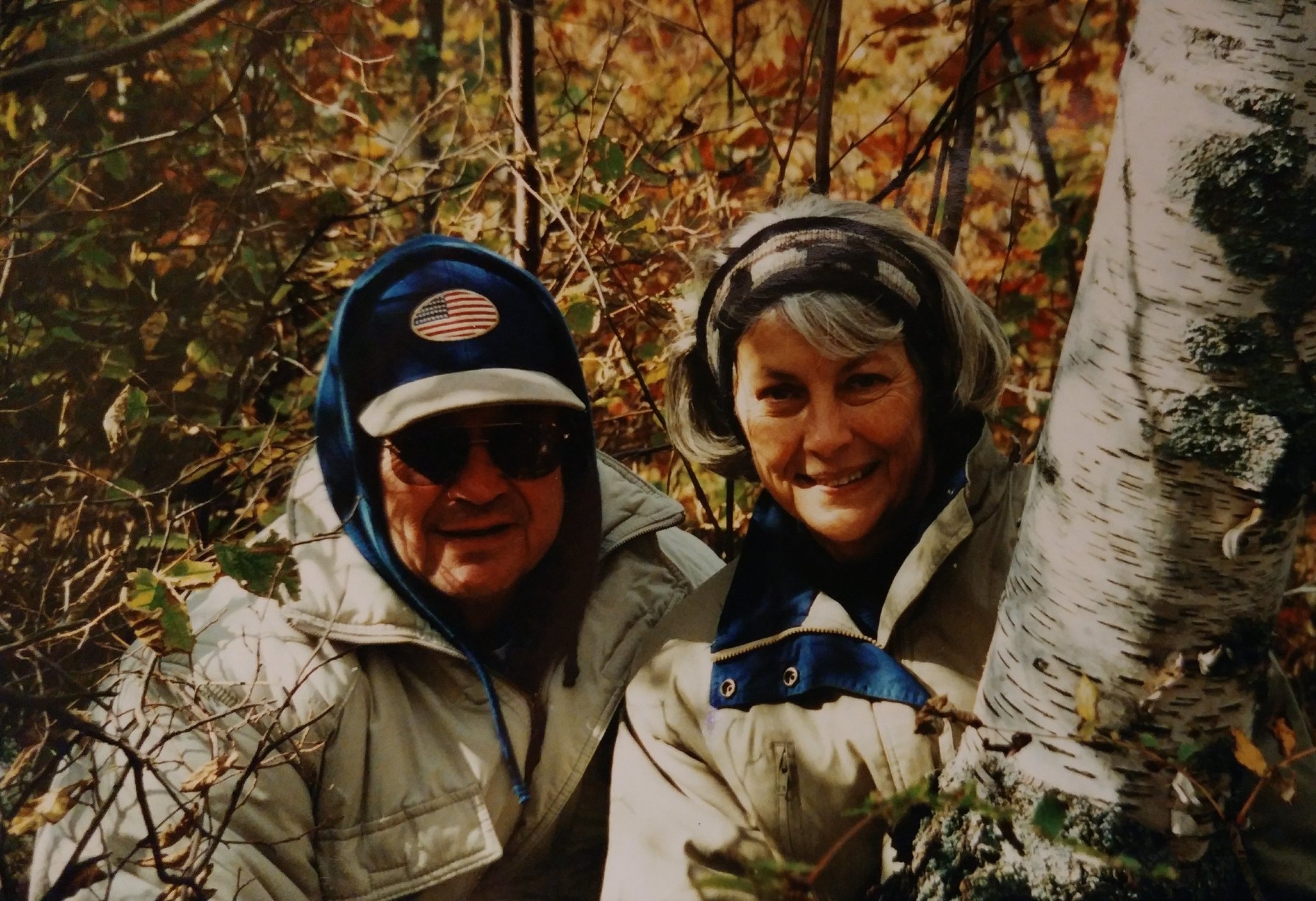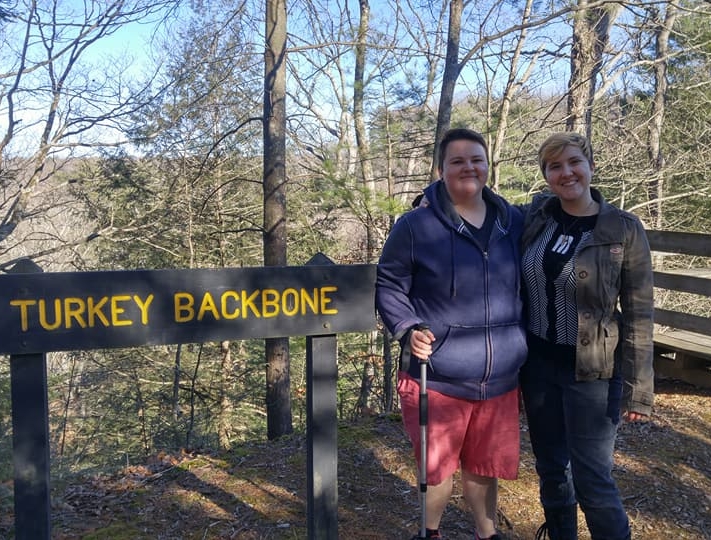When I lifted my hands away from patting soil into place around the spruce sapling I'd planted in our front yard, I noticed something familiar about my fingers. With the dirt deepening the lines of my knuckles, I recognized the strong, sinewy hands of my maternal grandmother.
I've never had much of a green thumb. Plenty of houseplants have met a premature demise at my hands, and I'm a known killer of cacti. So, it was surprising earlier this year when I managed to keep a begonia flowering in my kitchen for a couple months, which is a big deal for me. There are a few plants at my office which I care for as well, including a century-old fern that once decorated my great grandmother's porch. This year, they've been in exceptionally good form. While I know this is primarily due to the outdoor conditions, I feel a measure of pride as I water and trim them, as though I could claim their success as my own.
I associate gardening with my mother, who keeps her gardens gorgeous and green throughout the spring and summer. I cannot imagine the Victorian home in which I grew up without hydrangeas bursting with firework blooms around it and swallow-tail butterflies flitting among flowering bushes in front of the porch.
Some of her gardening prowess comes from her mother, my grandmother, Edie. When I think of her, I imagine her kneeling by a garden bed, gloved hands pulling weeds out by the roots, piling them next to her legs, tireless under the Michigan sun.
Edie died as a result of her ALS on Christmas in 2011, surrounded by family. The year is significant, because at that time, I'd come out as gay to my parents and friends, but I can't remember if I'd officially come out to anyone else by then, or if it was a shapeless knowledge that seeped outward without me directly addressing it.
I don't know if I ever talked to Edie about my queerness, and that uncertainty tortures me.
Edie and I were close. I spent summers with her and my grandfather, Bill, camping in their RV or roaming the strip of woods behind their home, hunting morel mushrooms to fry in butter. My relationship with my grandmother was one of quiet, mutual understanding, a kinship of spirits. As much as I loved my parents, there was a need in me that could only be met by spending time with someone as much like me as Edie.
As a kid, I thought of my grandmother and myself as a pair of cats in a family of dogs. We were independent and aloof, content to devour books as we reclined in patches of sunlight, and to sneak away to peruse yard sales, seeking treasures and projects and discarded histories. So often, the world felt too loud for me, too overwhelming, and Edie could sense and relate to that, and would sit with me by the fire, and we could be comfortably quiet together, and be nourished by that.
A lot of our communication was nonverbal, a contrast with our more verbal family members. Our conversations were book recommendations and sewing projects and polishing found furniture and sharing ice cream at midnight.
I'm so afraid that none of our actual conversations were about something that is so large a part of my identity as my queerness.
Which is not to say being gay is or should be a huge part of one's identity, but in the current culture, it kind of is. I'm sure Edie would have accepted me... her son is gay, too. But I actually don't know much about her opinion of LGBT matters.
What torments me most, though, is that regardless of whether she knew my orientation (which, given our silent conversations, she probably sensed to some degree anyway), she never met my wife.
Kelsey is such a significant piece of my life, and it astonishes me that she never met one of the other huge influences on my life. I think about how my grandmother wasn't at my wedding and I cry.
But then something will happen that reminds me that Kelsey is still meeting a part of Edie. I look in the mirror at my hair, graying early, like Edie's. I tap on Kelsey's arm when I see a sign for a garage sale. I use the garden hose to rinse dirt from my grandmother's hands.
Kelsey did meet my grandfather, when he was sick, close to the end. I think he knew we were together, but I didn't know how to talk about it. Kelsey recently told me about her one conversation with him, showing him a photo of her old truck, his face briefly lighting up. I wish he'd had the strength to show her his barn full of tools and projects. I wish they could have known how much alike they were.
Because day by day, we step more into my grandparents' shoes. We dream about camping by Lake Michigan as we stoke the fire in our backyard. We hunt morels, though we lack the perfect hunting grounds that Bill and Edie had. We take our dogs down to the shore to fish with us. We create things. We cultivate saplings.
Pulling weeds from the garden, our hands in the soil, we keep them with us.



